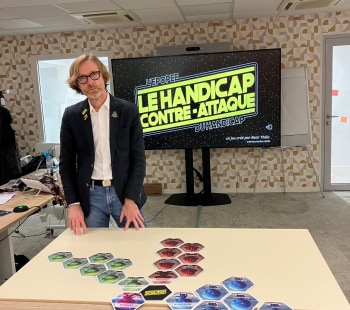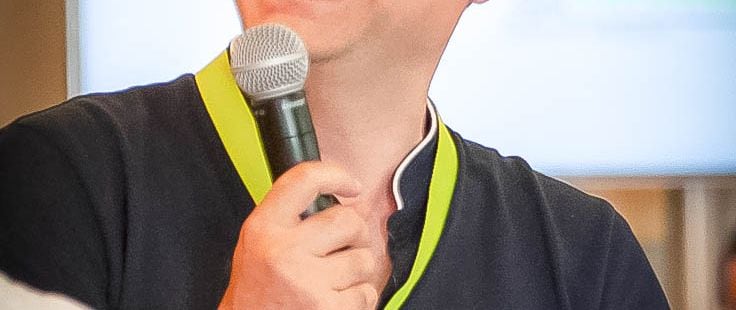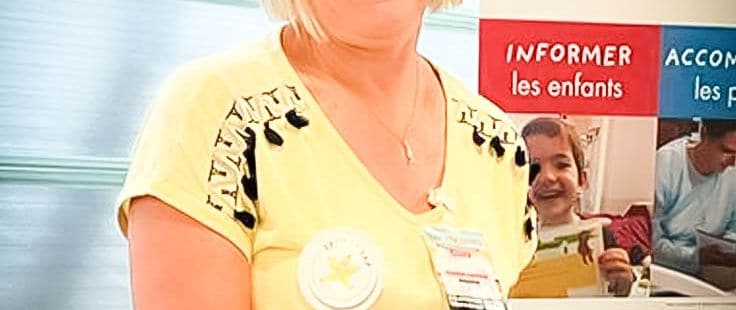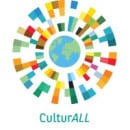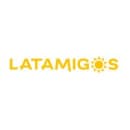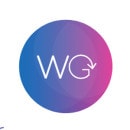
Diversity, Equality and Inclusion
Since 2004 and the signing of its first agreement on professional equality, BNP Paribas has pursued an active policy in favour of diversity, equality and inclusion, in order to foster a fair environment for everyone. We believe that diversity, equal opportunities and the way we live and work together are a source of wealth. That’s why we take action on a daily basis with all our stakeholders, to create an environment that is respectful of each person and is based on equality. And that’s why we have made the fight against discrimination one of our top priorities.
“Diversity in our teams, with respect for each person’s differences, offers each day more creativity, commitment and, hence, performance.”
Sofia Merlo, Head of BNP Paribas Group Human Resources
An inclusive working environment is undeniably important – a place where each individual is valued, respected and empowered, regardless of gender or background. We believe that promoting inclusion fosters innovation, increases employee loyalty and contributes to a positive corporate culture.
This commitment was enshrined in November 2024 with the signing, of a new agreement with the UNI Global Union, an international trade-union federation, which consolidates fundamental rights in the workplace. This agreement strengthens the common social base that applies to all of the Group’s 178,000 employees.
of Group employees say they can “be themselves”
in carrying out their professional responsibilities (Conduct & Inclusion survey conducted in 2023 with all Group employees)
Professional equality between women and men
BNP Paribas has integrated professional equality issues fully into its HR programmes, including wage equality, professional promotion, training and skillset development, and is pursuing its efforts to promote gender diversity in professional positions and female representation for shared governance. 51% of the Group’s employees are women (and 40% of its managers), and 49% are men. In 2024, 48% of new hires were women and 52% were men, all business lines combined.
BNP Paribas was the first CAC 40 company to join the #JamaisSansElles movement, in 2019. The Group has pledged to stop attending events with at least 3 speakers that don’t include at least one woman. In 2024, the Group had almost 700 signatories (70% men and 30% women) in more than 20 countries.
A proactive policy to promote equality
of Executive Committee members are women
With the goal of balanced representation between women and men on its governing bodies, the Group has set the target of having 40% women by the end of 2025. This target is already exceeded with 42% women on the Group’s Executive Committee and 41% women in BNP Paribas' G100 .
score on the equality and remuneration index
BNP Paribas SA’s score for 2024 was 86 out of 100, well above the minimum score of 75. This demonstrates the Group’s ongoing commitment to professional equality, particularly between women and men.
Combatting gender-based violence and its impact on the workplace
Because most victims of gender-based violence are women and because this inevitably has repercussions on professional life, such violence is both a factor in workplace inequality and an obstacle to professional equality between women and men. As an employer, BNP Paribas has taken action for several years now by supporting and guiding victims and informing and raising awareness among employees. it has also taken action as a bank, particularly in combatting economic violence.
To promote the exchange of good practices and boost the impact of its actions, the Group is also a member of several coalitions: OneInThreeWomen, Europe’s top network of companies acting against marital violence and #StOpE collective, which combats ‘ordinary’ sexism in business life.
Disabilities
We strive to offer an inclusive working environment, where there is room for all talents. We want to help change how disability is perceived by adopting a common stance in our 64 countries, while going beyond what is required by local regulations.
In 2022, BNP Paribas SA signed its 5th disability agreement (2022/2025), and many of its entities have introduced similar policies, including hiring disabled persons, professional integration and job retention, training and awareness-raising for employees and managers, and use of the Protected and Adapted Work Sector. Disability at the workplace is everyone’s business, whether or not one is actually disabled.
Many awareness-raising initiatives have been conducted with our employees to encourage dialogue and dispel the stereotypes surrounding disability at the workplace.
A serious game for cultural adaptation
Designed by a Group employee affected personally by a disability, the serious game “Disability Strikes Back” has participants put themselves in the place of a disabled person, thereby helping to change the way we look at disability.
Multiculturalism and diverse backgrounds
Present in 64 countries, with employees of 174 nationalities, BNP Paribas has been taking steps for several years to promote diversity and professional equity. We believe that cultural sharing is a source of wealth and contributes to the Group’s development.
Over the course of years, we have continued to support numerous programmes and associations working on professional inclusion of persons who, unfortunately, often continue to face barriers. These include Projet Banlieues and L’Ascenseur in France, Posse in the US, and the sponsorship and integration of refugees in Europe. The Group helps people move into the job market and promotes diversity within its teams.
“Our employees recognise that diversity and inclusion are among the company’s major concerns.”
Caroline Courtin, Head of Diversity, Equality and Inclusion at BNP Paribas
Diverse backgrounds: CulturALL, a valuable initiative supported by highly committed members
About 15 in-house professional networks (including HOLA, Latamigos and CulturALL) in several countries (Brazil, the US, Canada, France, Belgium, the UK, Portugal, and Scandinavian countries) is being developed and contributes actively to raising awareness of, and promoting, diverse backgrounds.
Sexual orientation and gender identity
In 2015, Jean-Laurent Bonnafé, Chief Executive Officer and Director of BNP Paribas, was the first head of a French bank to sign the LGBT Charter of Autre Cercle. Signatory companies pledge to create a more inclusive working environment and to ensure equal treatment. This support highlights the Group’s determination to combat discrimination based on sexual orientation or gender.
Taking action to promote a respectful working environment
Throughout the year, numerous initiatives are conducted to support a working environment promoting speaking out and dialogue, thus participating in combatting discriminations based on gender and sexual orientation.
In 2024, the Group took part in the barometer of inclusion of LGBT+ persons in the work place sponsored by Autre Cercle x Ifop. These inclusion values are also espoused by a network of employees that anyone is welcome to join, called “LGBT+ et alliés / alliées”. The BNP Paribas PRIDE network was founded in 2009 in the UK and is now present in about 30 Group countries, with 3,600 LGBT+ members and allies.
of employees
believe that BNP Paribas is committed to equal treatment, regardless of sexual orientation of gender identity.
Ageism and intergenerational relations
The Group’s abundance of skills and know-how are even better when they are shared. BNP Paribas has understood that well and has therefore created gateways between generations. In France, it has joined PaQte 2021, a French NGO, offering 1,500 traineeships to third-level high school students to open their eyes to careers in banking. Mentorship is another valuable tool for developing intergenerational dialogue.
The WeGenerations in-house network promotes interaction and sharing of experience in both directions of the age pyramid through meet-ups and a mentoring/reverse mentoring programme. Since 2022, we have also been signatories of an inter-company commitment on the role of employees over the age of 50.
Our intergenerational initiatives
An inclusive working environment
-
Equal opportunities at work also require a good work-life balance, particularly for parents or carers who have significant family responsibilities. BNP Paribas pays particular attention to these issues and takes numerous measures to support its employees, including providing financial assistance and daycare facilities for young children in many countries, the provision of prevention services and occupational health teams, as well as social assistance. In Germany and Austria, for the first time, the Group has been certified following a “Work and Family” audit that recognised its work-life-balance mechanisms and parental support. Read Global Social Agreement.
-
The Group allows employees to commit to four priority engagement pillars under the United Nations Sustainable Development Goals: accelerating the energy transition and promoting the preservation of biodiversity, promoting social inclusion (especially of young people) and combatting poverty, improving conditions for local communities in places where we operate and supporting entrepreneurial initiatives.
Various mechanisms and programmes are offered, including involvement with an in-house network, obtaining a subsidy for an association supported outside work, through the Help2Help programme, performing solidarity work during office hours as part of the 1MillionHours2Help programme, becoming a mentor in the 1000 mentors programme, or joining a skills sponsorship initiative.
-
Throughout the year, internal events are held around the world to raise awareness of various diversity-related issues: disability Employment Month, Parenting Workshops, Pride month and Inclusion Days... In parallel with these awareness-raising initiatives, training has been set up in various formats, including e-learning, personnel development programmes and leadership enhancement.
-
In France, as part of its Diversity, Equality & Inclusion policy, the Group has made strong and long-lasting commitments in favour of expanding sourcing with entities from the Protected and Adapted Work Sector (STPA) and the Insertion through Economic Activity Sector (SIAE). BNP Paribas, which is part of a business collective for a more inclusive economy, aims by 2025 to raise by 30% its inclusive sourcing in France (from STPAs and SIAEs), compared to 2022. A Responsible Procurement Charter details the commitments applying to both the Group and its suppliers.
Proactive networks
Throughout the Group, employee networks promote social well-being, get involved in their favourite causes, and play a key role in promoting diversity and inclusion. As a reflection of society’s concerns, the networks form informal ties and serve as information relays, suggestion boxes, and vectors for raising awareness.


